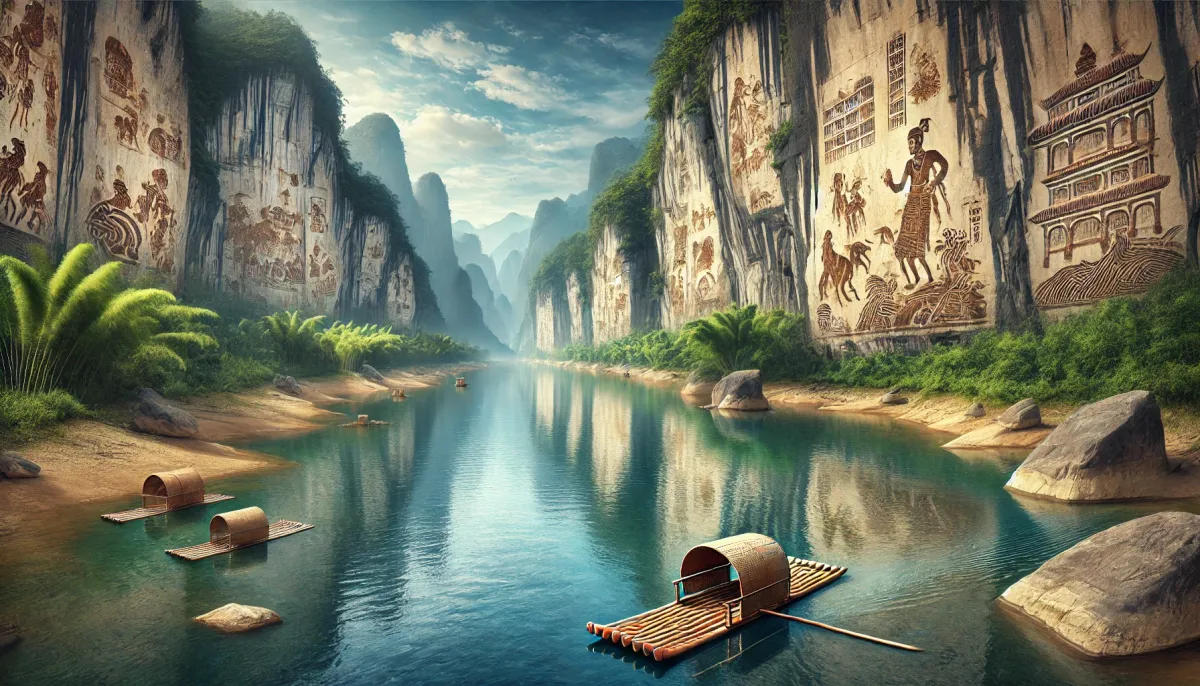Hi everyone, Mark here, your friendly neighborhood American backpacker! I've been exploring the incredible cities and hidden gems of Asia for years, and recently, Guangxi, China, completely stole my heart. Forget the usual tourist traps; this province offers a captivating blend of modern marvels and deeply rooted cultural traditions, a unique experience that will leave you breathless. This trip was truly unforgettable, and I'm thrilled to share my adventure with you.
Modernity Meets Ancient Charm in Nanning
Nanning, the capital city of Guangxi, surprised me with its impressive modernization. Gleaming skyscrapers and bustling streets stand as testaments to China's rapid progress. However, beneath the modern façade lies a rich tapestry of local customs and traditions. Guangxi's tourism industry has exploded in recent years, and rightly so! While Guilin is well-known, the surrounding areas offer a wealth of natural beauty and unique ethnic minority experiences.
Exploring the Enigmatic Huashan Rock Paintings
My journey began with a boat trip down the Mingjiang River, to witness the Huashan Rock Paintings – a UNESCO World Heritage site. These aren't your typical European-style paintings; instead, they're breathtaking depictions of life painted directly onto sheer cliffs. Imagine the ingenuity required to even reach these locations, let alone create such intricate artwork! The paintings offer a captivating glimpse into the lives and beliefs of the Zhuang people, the largest ethnic group in Guangxi.
| Fact | Detail |
|---|---|
| Zhuang Population | Nearly 19 million across 24 square kilometers of land in the Guangxi Zhuang Autonomous Region. |
| Significance | Largest ethnic group in China, second largest overall population after Han Chinese. |
| Location | Scattered throughout the region's striking karst landscape. |
| Huashan Rock Paintings | A testament to Zhuang culture and a UNESCO World Heritage site. |
The Serene Beauty of Mingshi Garden
Leaving the ancient history behind, I journeyed to Mingshi Garden, near Xin Cheng County, Guangxi (not to be confused with Guilin). This smaller, yet incredibly popular, scenic area is dominated by the Mingshi River, originating in Vietnam. The approximately 8km river is partly navigable, with approximately 2.2km currently accessible for tourists. I took a relaxing bamboo raft ride down the river, admiring the picturesque scenery – a welcome contrast to the more dramatic landscapes elsewhere in China.
Mingshi Garden is less about grand scale and more about intimate charm. It's a quintessential example of Southern China's rural beauty, offering a tranquil and unforgettable experience. Its peaceful nature and stunning views have made it a popular location for film shoots and wedding photos. It's the perfect place to unwind and appreciate the simple beauty of nature.
The Thundering Deteng Waterfall: A Transnational Marvel
Next on my itinerary was Deteng Waterfall, located on the border of China and Vietnam. This isn't just any waterfall; it's a transnational masterpiece! Deteng, along with Ban Gioc Waterfall (on the Vietnamese side), creates a combined spectacle approximately 208 meters wide during the rainy season. Though not among the world's largest, Deteng holds the title of the largest transnational waterfall in Asia.
| Waterfall Feature | Description |
|---|---|
| Width | 120 meters (Deteng alone), up to 208 meters combined during the rainy season |
| Height | Over 60 meters |
| River Source | Gui Chun River, Guangxi |
| Best Visiting Time | July to November (rainy season) |
| Historical Significance | Site of landmines from the Vietnam War |
A Journey Through History at Youyi Pass
My final destination was Youyi Pass (Friendship Pass) in Pingxiang City. This historically significant pass, one of China's nine famous passes, has served as a crucial gateway between China and Vietnam for over 2000 years. The name itself reflects the desire for peaceful relations between the two countries. The area is rich with history, having been the site of numerous conflicts and changes in governance.







